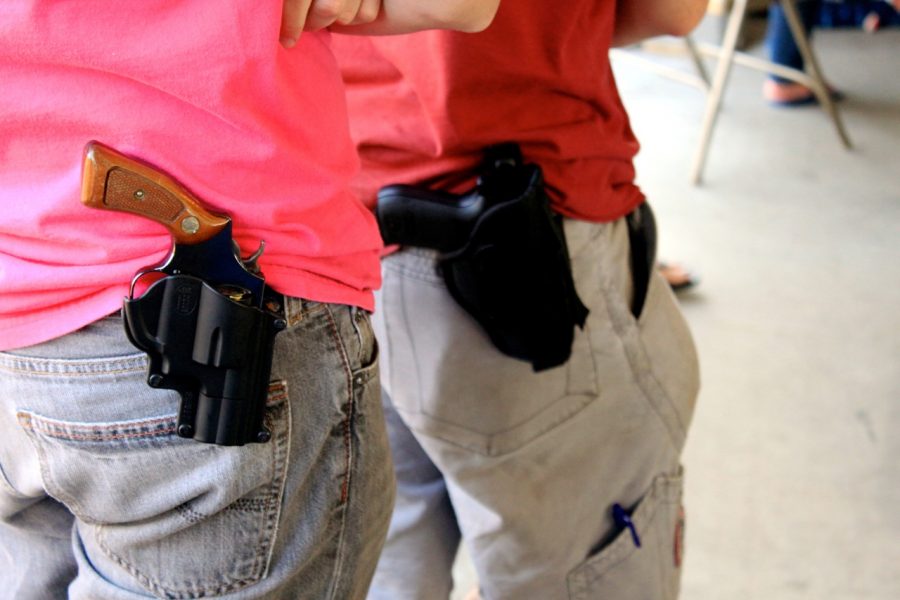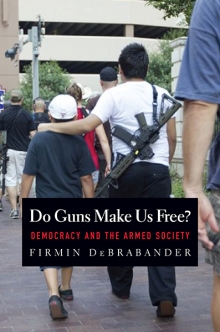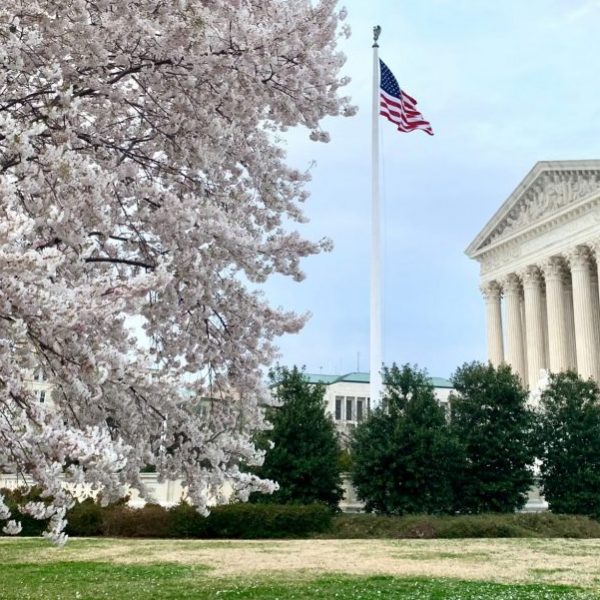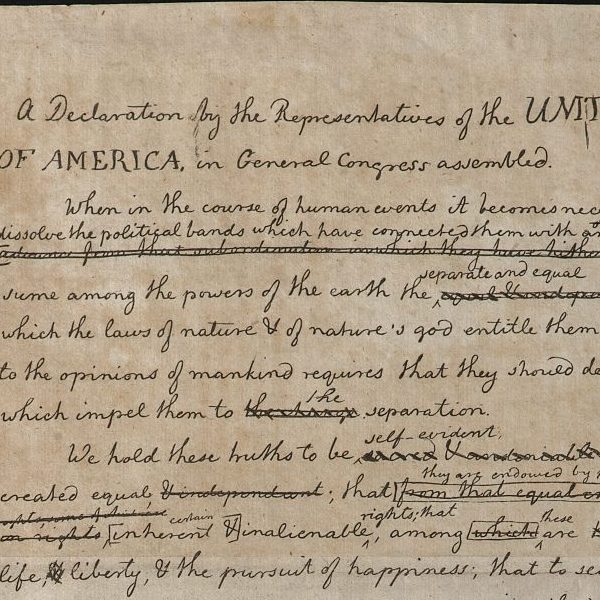The New Reality of Gun Laws in America
Firmin DeBrabander—
It is no surprise that presumptive Republican presidential nominee Donald Trump sought the endorsement of the National Rifle Association last week, though he is only a recent fan of the gun lobby’s uncompromising positions. Not long ago, Trump voiced approval for many gun safety measures. Trump is nothing if not brutally opportunistic, and clearly he wants the most ruthless lobby in America on his side. He likes to tout himself a winner—and of late, there are few lobbies that have strung together such stunning legislative victories—in the face of such daunting odds.
Last year was marked by several tragic shootings, which gripped the nation’s attention and raised the gun debate in our political discourse. There was the massive biker brawl outside a steak house in a suburban shopping mall in Waco, Texas. Nine people were shot dead, eighteen wounded, and over a hundred firearms collected by police at the site. In June, white supremacist Dylan Roof killed nine worshipers at a historic African American church in Charleston, South Carolina. And at Umpqua Community College in Oregon, in October, a student shot and killed nine in a classroom, before killing himself. In addition, shootings are on the rise in some urban centers across America—in some cases dramatically so. Chicago’s murder rate is up eighty-four percent in the past year; at the end of 2015, Baltimore had returned to the astronomical murder rates of the crack epidemic, when there was a killing a day in the city.
In the face of these notable atrocities and simmering bloodshed, many states have responded by relaxing gun regulations further. The week after the shooting in Waco, the state of Texas legalized Open Carry and Campus Carry. The latter, which allows concealed carry permittees to be armed on public university campuses, is set to take effect August 1 of this year—the fifty year anniversary of the first mass shooting on a college campus, at the University of Texas it so happens, when a man climbed the clock tower and picked off forty-nine people, killing sixteen. It seems odd that Texas would seek to mark this anniversary by returning guns to campus—against widespread objections of university administrators and professors in the state. In an alarming threat to academic freedom, many Texas professors worry that they need to practice self-censorship in the classroom, for fear that it might spark conflict, or incite angry—armed –students.
In South Carolina, it was learned that the Charleston shooter had two arrests, and should have been prevented from purchasing his firearm through a background check. Since said background check did not uncover his arrests in 3 days, the dealer was permitted—under the so-called ‘3 day loophole’—to go ahead and sell him the gun anyway. Legislators in the state have not acted to strengthen or expand the background check system since then—though a majority of South Carolinians support such a move. In fact legislators went ahead and loosened gun regulations further, passing a bill that allows concealed carry without a permit or safety training.
Chicago’s guns, it is well documented, flood into the city from neighboring jurisdictions with loose gun laws. Wisconsin, Indiana and Missouri—three states exporting most of the illegal firearms into Chicago—do not require background checks for private gun sales. Though eighty percent of Wisconsinites have supported universal background checks, governor Walker has defied their will. Missouri, meanwhile is engaged in a radical gun rights experiment, with tragic results.
Missouri legislators recently approved a bill allowing ‘Constitutional Carry’ in the state; you do not need a permit or safety training for concealed carry. In addition, the state became the first since the Trayvon Martin controversy to approve a new Stand your Ground bill. The combination of the two bills prompted one legislative critic to say “We’re essentially authorizing a citizen without training to have a firearm, and then another citizen who is afraid that that citizen has a firearm to shoot and kill them.”
There is little doubt Missouri’s decision is ill-advised. The state is already cited as an egregious example of what happens when gun safety laws are eased or rolled back. Gun violence researchers at Hopkins published a well-known report, cited by the President among others, which reveals a significant spike in gun-related murders since its 2007 repeal of a law that “required background checks and licenses for handgun owners.” Researchers have offered Missouri as an illuminating counterpoint to Connecticut, which, since it inaugurated a law enforcing the measures Missouri had done away with, has seen a major decline in gun-related murders. It is worth noting—again—that most Missourians object to the gun rights measures legislators are busy approving.
These new expansive gun laws are tremendously reckless. There is no debate among researchers that they will lead to more unnecessary deaths. The public seems to understand this, and largely objects to the measures mentioned above. Why do our legislators ignore the advice of public health officials, and the will of the voting public? The NRA is very effective at manipulating lawmakers, and forcing their hand; or at least, the gun lobby is very successful at making legislators spineless. The real question at this point is, when will the public make them pay?
Firmin DeBrabander, an associate professor of philosophy at Maryland Institute College of Art, has written social and political commentary for numerous publications, including the Baltimore Sun, Common Dreams, Counterpunch, and the New York Times.





